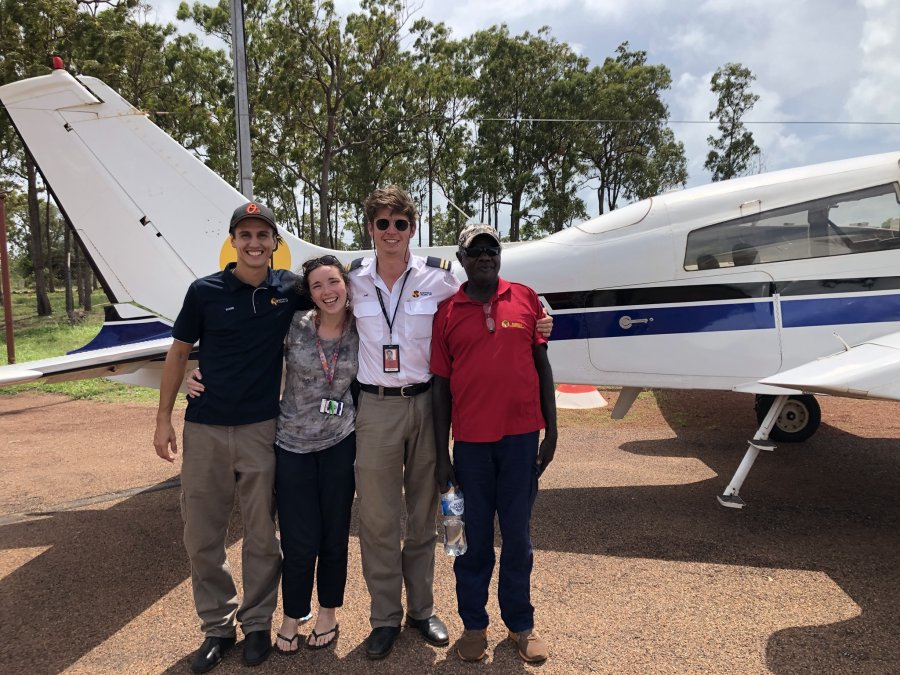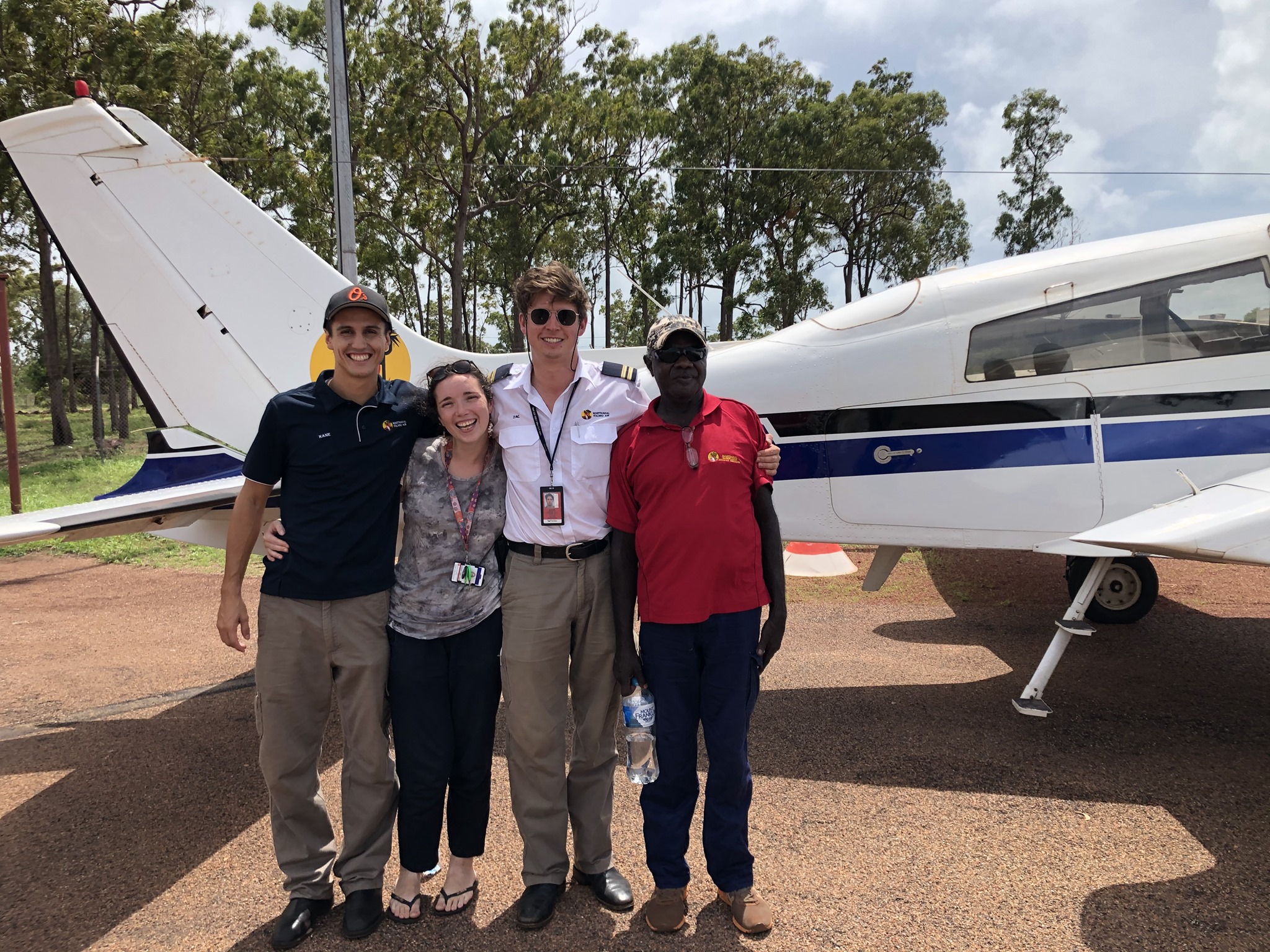From ICU to Remote Australia: A Nurse's Journey of Lifelong Learning and Tropical Health Advocacy
10 January 2025 London School of Hygiene & Tropical Medicine London School of Hygiene & Tropical Medicine https://lshtm.ac.uk/themes/custom/lshtm/images/lshtm-logo-black.png
As a nurse, my career has been far from conventional. From the high-pressure ICU wards in the UK to the vast and remote Aboriginal communities of Australia, I’ve had the privilege of working in incredibly diverse settings. Each experience has shaped me into the nurse I am today, teaching me the importance of adaptability, lifelong learning, and the resilience needed to balance a demanding career with further studies.
The concepts I’ve learned through the DTN programme have been directly applicable to both clinical practice and advocacy.
A Journey Across Continents
My nursing career began in the UK, where I trained with an advanced diploma and worked in high-intensity environments such as ICUs, pre-hospital care, and anaesthetics. After several gruelling years, I experienced burnout and decided to chart a new course. This led me to crisis humanitarian work, consulting in Japan and Russia, before embarking on what I thought would be a “working holiday” in Australia.
What began as a one-year plan turned into more than a decade of growth and discovery. Eventually, I found myself in the Northern Territory, initially for a six-week contract. However, a job freeze in Queensland kept me there, and I’ve never looked back. Over the years, I’ve primarily worked in remote Aboriginal communities, combining primary health care, urgent and emergency care, and pre-hospital medicine.
One standout chapter was managing a nurse-led clinic in Kakadu National Park for three years. This role saw me handling everything from coordinating multi-agency incidents to participating in helicopter search-and-rescue missions.
The Role of Education in Remote Nursing
Postgraduate education wasn’t my initial focus, but Australia’s emphasis on lifelong learning, particularly in remote health, changed my perspective. I’ve since earned a Master’s in Emergency Nursing and a Graduate Diploma in Rural and Remote Nursing. Currently, I’m pursuing a Professional Diploma in Tropical Nursing (DTN) through the London School of Hygiene & Tropical Medicine (LSHTM).
The DTN programme appealed to me because it’s one of the few nursing-specific courses in tropical health. While many such programmes are tailored to doctors, the DTN recognises the unique and vital role of nurses in this field.
Looking ahead, I’m even considering a PhD, though the when and where are still up in the air. Finland, perhaps?
Balancing Work, Study, and Time Zones
The DTN programme is thoughtfully structured, making it manageable for busy professionals. However, time zones do pose a challenge. Attending live sessions isn’t always feasible, but the recorded sessions are excellent for catching up. That said, live attendance has its advantages, particularly for small group discussions and real-time Q&As.
If you’re considering the course, I’d recommend arranging your work roster to accommodate live sessions whenever possible. To keep on top of everything, I rely heavily on diaries, calendars, and reminders. Setting clear boundaries and managing your time effectively are absolute musts, otherwise, it’s easy to feel overwhelmed.
Reflecting on my journey, I’m reminded of how much nursing has given me. It’s more than a career, it’s been a gateway to incredible opportunities, a platform for advocacy, and a constant reminder of the interconnectedness of health care and humanity.
Lab Skills in a Virtual World
One of the programme’s highlights has been the lab skills sessions. Claire, the instructor is brilliant, her energy and passion make the sessions engaging and interactive, even online. The slides and resources are top-notch, and I was fortunate enough to arrange an in-person lab day at a nearby hospital. Practising blood film preparation and using a microscope tied everything together beautifully.
What Makes the DTN Stand Out
The DTN programme has exceeded my expectations in every way. The depth of knowledge shared by the lecturers, many of whom are experts in their fields, is exceptional. Interacting with small group facilitators, who bring their own experiences as former students, has been one of the most enriching aspects.
LSHTM’s global reputation and the alumni opportunities, such as the journal club, are also standout features. Few institutions treat tropical nursing as their own discipline, making LSHTM a truly unique and invaluable resource.
The Challenges and Rewards of Remote Nursing
Working in remote Australia comes with its own set of challenges. Neglected tropical diseases like TB, leprosy, and HIV are growing concerns, while non-communicable diseases are compounded by systemic issues such as workforce shortages and social determinants of health. The concepts I’ve learned through the DTN programme have been directly applicable to both clinical practice and advocacy in these areas.
Looking to the future, I hope to work in other regions, such as the Pacific nations or Timor-Leste. The knowledge and skills I’ve gained through the DTN programme will undoubtedly be instrumental in these ventures.
Advice for Future Students
If you’re considering the DTN or studying with LSHTM, here are a few tips:
- Plan for live sessions. Try to arrange your work schedule to attend live lectures and group discussions.
- Brush up on academic skills. Familiarise yourself with master’s-level writing, literature searches, and Harvard referencing before starting, it’ll save you time later.
- Organise your time. Setting aside dedicated study time and sticking to it is crucial.
Above all, approach the programme with curiosity and an open mind. The diversity of the student group, culturally, linguistically, and professionally, creates a vibrant learning environment that will inspire and challenge you.
Final Thoughts
Reflecting on my journey, I’m reminded of how much nursing has given me. It’s more than a career, it’s been a gateway to incredible opportunities, a platform for advocacy, and a constant reminder of the interconnectedness of health care and humanity. Whether in a bustling ICU, the rugged landscapes of Kakadu, or a virtual classroom with LSHTM, the essence of nursing remains the same: compassion, curiosity, and a commitment to making a difference.
- Learn more about the Professional Diploma in Tropical Nursing
- You may also be interested in:
- All short courses at LSHTM.


